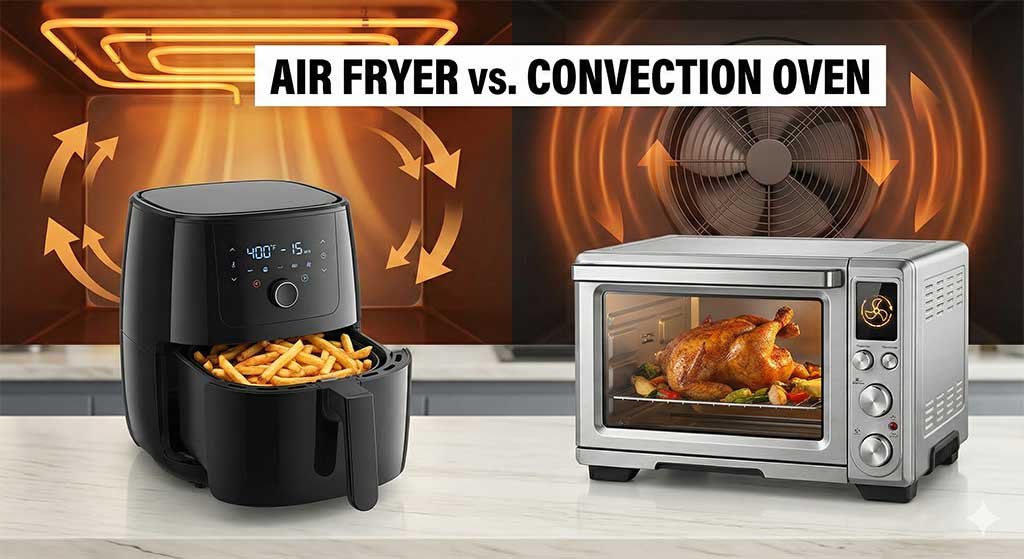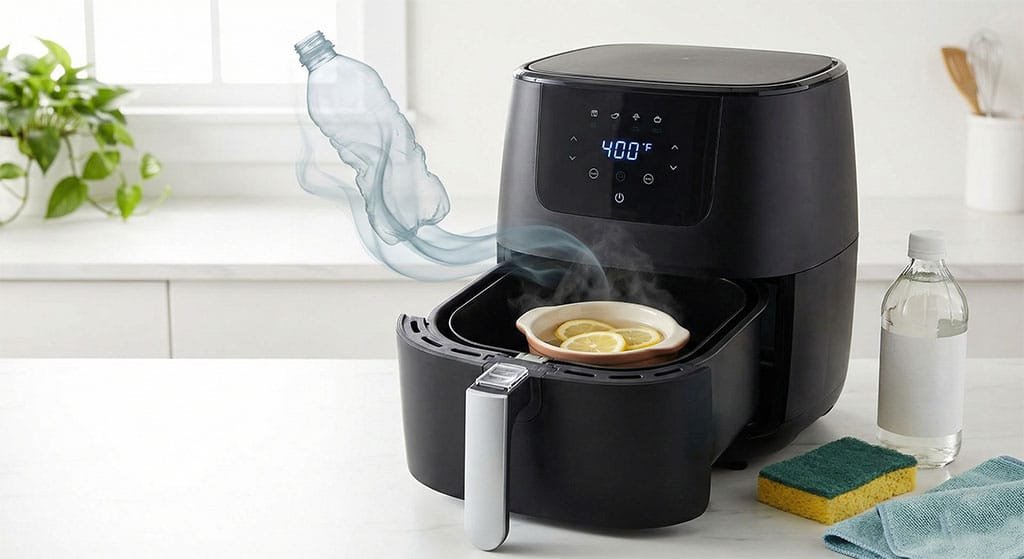Refrigerators are one of technology’s begged benefits. Not only have they revolutionized the food industry, but they are also a must-have in most homes. But for all their benefits, they can be pretty noisy.
So, what do you do when you have a loud refrigerator compressor? You go through our proven steps on how to quiet a noisy refrigerator compressor. A home should be your comfort zone, a place to sit back and relax. No one would want their zone to be noisy.
Jump on as we offer you the tips you can follow and cut out the noise from your refrigerator compressor. But before we get to that,
Table of Contents
What Is a Refrigerator Compressor and How Does It Work?

Most of us rarely care to know much about the parts of our refrigerators as long as they are working fine. However, it pays to know a few of the parts so that you can roughly guess where it is when there’s an issue.
The compressor in the refrigerator is the part responsible for the cooling or freezing. When you put your food or drink in the fridge and come back to a cool drink, yes, the compressor has something to do with it.
It circulates the refrigerant through all the parts of the unit. That’s why it’s one of the essential parts of the refrigerator unit.
So how does it do that?
To understand that better, you need to know the parts of the compressor works with. The below components work with the compressor to ensure the refrigerant gets to all the parts of the refrigerator.
- The expansion valves
- The condenser and
- Evaporator coils
The above parts work in tandem with the compressor to ensure the fridge is cool. Here is how they do that.
The compressor usually forces the refrigerant through the condenser coils in vapor form. In the condenser coils, the vapor turns into liquid. That’s because it meets lower temperatures that enable it to change physical states.
While in the liquid state, the refrigerant flows through all the fridge’s components and cools them down by taking away the heat. Therefore, it makes the fridge’s internal temperature cooler and enables the refrigerant to cool its contents.
The refrigerant goes through this cycle and back to the compressor again in vapor form. The cycle is continuous as long as the fridge is on power. The compressor has a pump and motor that makes it possible for the refrigerant to travel through all the fridge components.
What Are Normal Noises from A Refrigerator?
If you own a refrigerator, you know that there are specific sounds typical of a fridge. There is usually a clicking and humming sound. The humming sound is more prominent as you can hear it virtually anytime the refrigerant is on.
You can hear the clicking sound several times in the course of the refrigerant being on. All those are normal sounds you would expect from a standard refrigerator. The compressor makes the sounds since it is the one that does most of the refrigerating work.
Hissing and dribbling sounds are familiar since the refrigerant moves around in a liquid form. They might also point to the flow of oil inside the compressor.
All the above noises wouldn’t be that loud unless there is an issue with the compressor. In fact, you should be worried when you hear no sound from your refrigerator.
Some new models might be quieter, but regular refrigerators shouldn’t be that quiet. Now, if the sounds become too much, it will mean there is a problem with your refrigerator’s compressor.
They typically aren’t that loud. Having said that, how do you quiet them down?
How to Quiet a Noisy Refrigerator Compressor?
The primary way you can make a refrigerator compressor quiet is by adding soundproofing around it. That reduces the sound by up to 50%. You can also change the compressor if it’s old and replace it with a new one to reduce the noise. Adding rubber around the compressor can also work.
Here are the more detailed ways you can do it.
Add Some Rubber on the Compressor Motor
One of the most popular sound dampeners is rubber. If you put rubber on the compressor motor, you will significantly reduce the noise coming from it. That’s because the rubber will absorb any rattling or vibrating sounds and make the compressor quieter.
Cover the Compressor Motor with Deadener Mat
There are different types of sound deadening mats you can use to tone down the noise. With a deadener mat, you would need to wrap it around the offending part of the compressor. That is usually the motor.
Wrap the motor with the deadener mat and you will hear the noise reduction.
Place Anti Vibration mats on Your Floor
This is like the previous strategy, only that you do not have to touch the compressor this time. It is an easy and effective way and would cut down the noise by up to 50%.
All you need to do is buy the antivibration mats and place them below the fridge. All the bottom parts of the refrigerator should be on the mat to ensure they absorb all the vibratory noise the fridge’s compressor will produce.
Clean the Compressor’s Components
Poor refrigerator maintenance is something many people are guilty of. Sometimes, all it takes to reduce the noise from your compressor is to clean it and rid it of all the dust and dirt.
The fa is probably noisy because it keeps hitting against dirt and other dust. Insects such as moths might have even got themselves trapped in the fan, causing it to give off rattling sounds whenever the refrigerator is working.
Suffice to say, don’t clean the compressor with a damp cloth. A dry cloth should do. If water touches any of the parts of the compressor, then you might ruin it. You wouldn’t want that.
Construct refrigerator Housing
This might seem farfetched, but it’s a brilliant idea. Have a carpenter take the dimensions of the refrigerator, then make a wooden housing for it. That should prevent any noise the fridge makes from getting out in the open and disturbing your peace.
Replace the Compressor
Sometimes the best way of dealing with a problem is by eliminating its source. Your compressor may be loud because it is old and overworked.
Old compressors will be rickety and give loud rattling sounds when working. That’s why it could be a brilliant idea if you replaced it and got a new one. While doing that, ensure you get one that’s compatible with your refrigerator.
Soundproof the Walls Behind the Fridge
The sounds from the compressor often bounce off the wall behind the fridge and then travel across the whole room. Therefore, soundproofing the walls behind the refrigerator will ensure there is no bouncing off the vibratory noise from the compressor.
Get an Intake silencer
The intake is one part of the compressor that causes it to be quite noisy. Therefore, if you can make it quieter, you will have reduced the noise level from the compressor by some percentage.
A silencer will go a long way in reducing the noise. The silencer has an air filter and a silencing device. The device ensures the intake emits less noise whenever there is air intake.
Soundproof the Insides of your refrigerator
This is another option you could try to reduce the noise from the fridge compressor. Mass-loaded vinyl is one of the many materials you can add inside the refrigerator to ensure it doesn’t produce as much noise.
You can add it around the compressor’s motor as well to reduce the noise from it.
Use Vibration Pads
Vibrating sounds come in handy whenever you notice your refrigerator produces lots of vibratory sounds. Placing the pads below the fridge will help absorb the vibrations and thus reduce the noise.
Frequently Asked Questions
Must a refrigerator compressor make noise?
Yes, a humming and occasional clicking noise from your refrigerator is a sign it is working fine. You only have to worry when these sounds become too loud.
How much noise would a defective refrigerator compressor make?
A lot of noise. The noise would be a stark departure from the usual humming and clicking sounds of the compressor.
How do I know if the compressor has a problem?
Several things would give it away. First is the lack of cooling in the refrigerator. The compressor spreads the refrigerant and cools the contents of the fridge. If it doesn’t do that, then there is a problem. Second, you would hear abnormal noises that rarely come from your refrigerator.
Final Thoughts
There you have them—the ten best ways on how to quiet a noisy refrigerator compressor. You don’t have to put up with loud noises from your refrigerator if you can help it.
Try the tips we have mentioned and see how wonderfully they will work. All the best.



Leave a Reply